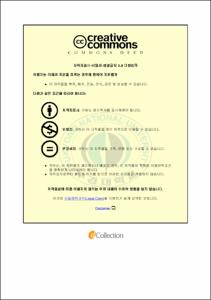아동이 지각한 아버지의 양육참여도와 학업적 자기효능감 및 성공지능과의 관계
- Alternative Title
- elationship between father's Child-rearing involvement perceived by children, Academic Self-Efficacy and Successful Intelligence
- Abstract
- The purpose of this study is to examine the relationship between not only father's child rearing and academic self-efficacy, but also successful intelligence. Based of this purpose, the key questions to define are as follows.
1. Are there any differences perceived by children among father's child rearing involvement, academic self-efficacy and successful intelligence, according to grade and gender?
2. How is the relationships among father's child rearing involvement perceived by children, academic self-efficacy and successful intelligence?
3. How does father's child rearing involvement perceived by children affect children's academic self-efficacy?
4. How does father's child rearing involvement perceived by children affect children's successful intelligence?
The object of this study was 350 5th and 6th graders who attend elementary schools in Busan. Choi Gyeong Sun's (1992) index was used as a measurement of father's child rearing involvement perceived by children. Kim Ah Young and Park Ihn Young's (2002) index was used as a measurement of children's academic self-efficacy to verify validity. Lee Sang Hee's (2009) index , which was adapted to Sternberg's (1993) intelligence test, was used as a measurement of children's successful intelligence to be appropriate for elementary school's level.
The results from this study were as follows:
First, examining tendencies according to grade and gender, girls more perceived when father's child rearing involvement is high than boys, and also it indicated that girls' academic self-efficacy and successful intelligence was higher than boys'. Gap according to grade shows that 5th graders had higher academic self-efficacy than 6th graders, but 6th graders had higher successful intelligence than 5th graders.
Second, the higher father's child rearing involvement perceived by children, the higher academic self-efficacy and successful intelligence.
Third, father's child rearing involvement perceived by children affect children's academic self-efficacy meaningfully.
Fourth, father's child rearing involvement perceived by children affect children's successful intelligence meaningfully.
This study shows father's child rearing involvement is associated with children's academic self-efficacy and successful intelligence. Especially it shows that the higher the rate of father's taking part in spare time and mentoring his children's life, the higher children's academic self-efficacy and successful intelligence. This study suggests that father's child rearing involvement is important and the father's role is as important as the mother's role for the emotional and cognitive development of children.
- Issued Date
- 2011
- Awarded Date
- 2011. 8
- Type
- Dissertation
- Publisher
- 부경대학교
- Alternative Author(s)
- Kim, Eun Hui
- Affiliation
- 부경대학교
- Department
- 교육대학원 교육심리전공
- Advisor
- 황희숙
- Table Of Contents
- 목 차
Ⅰ. 서론 1
1. 연구의 필요성 및 목적 1
2. 연구문제 5
3. 연구의 제한점 5
4. 용어의 정리 6
Ⅱ. 이론적 배경 8
1. 아버지의 양육참여 8
2. 학업적 자기효능감 13
3. 성공지능 20
4. 아버지의 양육참여도와 학업적 자기효능감 및 성공지능에 대한 선행연구 28
Ⅲ. 연구방법 31
1. 연구대상 31
2. 검사도구 32
3. 자료수집 절차 36
4. 자료 분석 36
Ⅳ. 연구 결과 및 해석 38
1. 각 변인의 발달적 경향 분석 38
2. 아동이 지각한 아버지의 양육참여도와 학업적 자기효능감 및 성공지능과의 관계 44
3. 아버지의 양육참여도가 아동의 학업적 자기효능감에 미치는 상대적 영향력 46
4. 아버지의 양육참여도가 아동의 성공지능에 미치는 상대적 영향력 47
Ⅴ. 논의 49
1. 학년 및 성별에 따른 아버지의 양육참여도와 학업적 자기효능감 및 성공지능의 차이 49
2. 아동이 지각한 아버지의 양육참여도와 학업적 자기효능감 및 성공지능과의 관계 52
3. 아버지의 양육참여도가 아동의 학업적 자기효능감에 미치는 상대적 영향력 55
4. 아버지의 양육참여도가 아동의 성공지능에 미치는 상대적 영향력 56
Ⅵ. 결론 및 제언 57
1. 결론 57
2. 제언 58
참고문헌 60
부록 70
- Degree
- Master
- Files in This Item:
-
-
Download
 아동이 지각한 아버지의 양육참여도와 학업적 자기효능감 및 성공지능과의 관계.pdf
기타 데이터 / 904.61 kB / Adobe PDF
아동이 지각한 아버지의 양육참여도와 학업적 자기효능감 및 성공지능과의 관계.pdf
기타 데이터 / 904.61 kB / Adobe PDF
-
Items in Repository are protected by copyright, with all rights reserved, unless otherwise indicated.